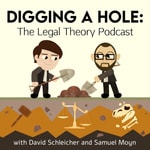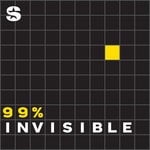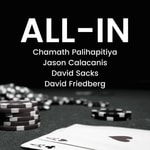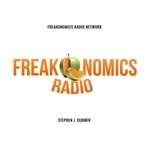Digging a Hole: The Legal Theory Podcast – Détails, épisodes et analyse
Détails du podcast
Informations techniques et générales issues du flux RSS du podcast.

Digging a Hole: The Legal Theory Podcast
Digging a Hole Podcast
Fréquence : 1 épisode/24j. Total Éps: 71

Classements récents
Dernières positions dans les classements Apple Podcasts et Spotify.
Apple Podcasts
🇺🇸 États-Unis - socialSciences
26/07/2025#88🇺🇸 États-Unis - socialSciences
25/07/2025#90🇺🇸 États-Unis - socialSciences
23/07/2025#95🇺🇸 États-Unis - socialSciences
22/07/2025#87🇺🇸 États-Unis - socialSciences
21/07/2025#88🇺🇸 États-Unis - socialSciences
17/07/2025#70🇺🇸 États-Unis - socialSciences
16/07/2025#75🇺🇸 États-Unis - socialSciences
11/07/2025#87🇺🇸 États-Unis - socialSciences
10/07/2025#63🇺🇸 États-Unis - socialSciences
09/07/2025#66
Spotify
Aucun classement récent disponible
Liens partagés entre épisodes et podcasts
Liens présents dans les descriptions d'épisodes et autres podcasts les utilisant également.
See all- https://gbdeclaration.org/
44 partages
Qualité et score du flux RSS
Évaluation technique de la qualité et de la structure du flux RSS.
See allScore global : 32%
Historique des publications
Répartition mensuelle des publications d'épisodes au fil des années.
Dylan Penningroth
jeudi 30 mai 2024 • Durée 01:02:22
With the long weekend in the books, summer’s officially here. School’s out, and we can’t imagine why people would be thinking about American universities – has anything interesting or controversial been happening on campus recently? (Our field correspondent David Pozen reports.) Anyway, today’s episode is the last episode of the season, and we’re excited to let this one linger in your minds for the next few months. Today’s very special guest is the MacArthur “Genius” Award-winning Dylan C. Penningroth, Professor of Law and Alexander F. and May T. Morrison Professor of History at the University of California, Berkeley, here to discuss his wonderful new book Before the Movement: The Hidden History of Black Civil Rights.
Penningroth begins by showing how his research expands the scope of African American history to everyday legal relations between Black individuals and discusses his great-great-great-uncle as a great example. After Sam and Penningroth frame the conversation as one about Black people using private rights in support of the southern economy, David follows up with a question about the inevitability of capitalism. Next, Penningroth makes the case that his account complements, instead of contradicts, the politically-focused work of W.E.B. DuBois and historians like Risa Goluboff and Eric Foner. We end this semester with some advice for social movements. See you on the other side, listeners.
This podcast is generously supported by Themis Bar Review.
Referenced Readings
“The Privilege of Family History” by Kendra T. Field
“Race in Contract Law” by Dylan C. Penningroth
“Why the Constitution was Written Down” by Nikolas Bowie
Nothing But Freedom: Emancipation and Its Legacy by Eric Foner
Saving the Neighborhood: Racially Restrictive Covenants, Law, and Social Norms by Richard R. W. Brooks and Carol M. Rose
The Lost Promise of Civil Rights by Risa L. Goluboff
Simple Justice: The History of Brown v. Board of Education and Black America’s Struggle for Equality by Richard Kluger
Mehrsa Baradaran
jeudi 23 mai 2024 • Durée 01:04:14
We’re almost at the end of our season, just as the biggest sports leagues in the world come to the end of theirs (as our guest today says, it all revolves around oil, and maybe a bit of corruption and looting). Speaking of today’s guest, we’ve got on an expert in banking and the racial wealth gap whose biography will probably surprise you at every turn: Mehrsa Baradaran, Professor of Law at the University of California Irvine School of Law, who takes us on a tour of her new book The Quiet Coup: Neoliberalism and the Looting of America.
Even though Sam and David’s respective views on neoliberalism are what makes this a podcast divided, Baradaran opens the podcast by telling us that neoliberalism is synonymous with corruption and looting, but also that she’s a big fan of markets. Next, Baradaran gives us a brief and maybe controversial account of the post-World War Two era, placing empire and race, not economics or ideology, at the center. Sam presses Baradaran on her thesis: that conmen and grifters, big oil and big tobacco, used neoliberalism, which then gained a life of its own as law and economics. David valiantly defends law and economics (sadly, no one seems to be convinced). We end with exposing the quietest coup: maybe Baradaran, in aiming to bare everything wrong with our economic system, was the real neoliberal all along.
This podcast is generously supported by Themis Bar Review.
Referenced Readings
The Wretched of the Earth by Franz Fanon
The Color of Money: Black Banks and the Racial Wealth Gap by Mehrsa Baradaran
Public Citizens: The Attack on Big Government and the Remaking of American Liberalism by Paul Sabin
The End of Ideology: On the Exhaustion of Political Ideas in the Fifties by Daniel Bell
The God Delusion by Richard Dawkins
Racecraft: The Soul of Inequality in American Life by Karen E. Fields and Barbara J. Fields
“Protestors Criticized For Looting Businesses Without Forming Private Equity Firm First” in The Onion
Daniel Ziblatt
mardi 24 octobre 2023 • Durée 57:43
Squarely in the heart of the Trump administration, Steven Levitsky and Daniel Ziblatt published a book titled How Democracies Die which proved enormously popular. Celebrities read it. Obama read it. Most people you know probably pretended to have read it. Five years later, Levitsky and Ziblatt are back with a sequel of sorts, arguing that in the United States, democracy might never have been fully alive in the first place, strangled in the cradle by our very own constitution. To explain how their thinking has changed since How Democracies Die and discuss the new book, Tyranny of the Minority, we’re thrilled to have on today’s podcast Daniel Ziblatt, Eaton Professor of Government at Harvard University and director of the Transformations of Democracy group at Berlin's Social Science Center.
In this episode, we poke around into all of the different ways the United States privileges minoritarian politics. Ziblatt explains that a major contribution of Tyranny of the Minority is showing how regular politics interact with our constitution’s minoritarianism to create a particularly potent anti-democratic danger for the United States. We discuss the legislative advantage minorities have in the U.S. thanks to our love of holding onto grand old traditions like the filibuster and what that means for statutory interpretation. Democratic backsliding, the advantages of party politics, papal smoke and mirrors–it’s all in there. We hope you enjoy.
This podcast is generously supported by Themis Bar Review.
Referenced Readings
How Democracies Die by Steven Levitsky and Daniel Ziblatt
Democratic Justice: Felix Frankfurter, the Supreme Court, and the Making of the Liberal Establishment by Brad Snyder
“Inside or Outside the System?” by Eric Posner and Adrian Vermuele
After Misogyny: How the Law Fails Women and What to Do about It by Julie Suk
The Anti-Oligarchy Constitution: Reconstructing the Economic Foundations of American Democracy by Joseph Fishkin and William Forbath
“The Insulation of Local Governance from Black Electoral Power: Northern Cities and the Great Migration” by Jacob Grumbach, Robert Mickey, and Daniel Ziblatt
Emma Kaufman
mardi 17 octobre 2023 • Durée 56:14
As the Supreme Court moves forward with its administrative state agenda, we thought we’d get in on the action and make sure we understand what exactly that agenda even is. Lucky for us, we’ve got some friends who can shed light on that matter. On today’s episode, we’re joined by Emma Kaufman, Professor of Law at New York University Law School, to discuss her paper, co-authored with previous pod guest Adam Cox, “The Adjudicative State.”
In this episode, we talk about the administrative state as a neglected site of adjudication and agency adjudication as a neglected site of administration. First, Professor Kaufman explains how her past research on immigration helped her identify and break through these blind spots. Next, we talk about how best to achieve equal justice under the law. Should we follow the legal academy, and half the op-eds in the New York Times, and leave politics out of courts? Or should we politicize justice entirely? (It turns out politicizing administration is complicated anyway!) Finally, Professor Kaufman leaves us with a bit of a cliff-hanger – stay tuned for her history of private prosecution and tune in to find out how it related to the rest of the topics on today’s pod.
This podcast is generously supported by Themis Bar Review.
Referenced Readings
“1930s Redux: The Administrative State Under Siege” by Gillian Metzger
J.B. Ruhl and Jim Salzman
vendredi 29 septembre 2023 • Durée 49:48
After a long summer vacation, we’re thrilled to be back for season seven of Digging a Hole! Just a couple of weeks ago we were baking; now we’re surviving storm after storm, quivering and quaking. Climate change, huh? Here on the pod to discuss their forthcoming paper on how environmental law can help get us out of our existential crisis, “The Greens' Dilemma: Building Tomorrow's Climate Infrastructure Today” are J.B. Ruhl, the David Daniels Allen Distinguished Chair in Law at Vanderbilt Law School, and Jim Salzman, the Donald Bren Distinguished Professor of Environmental Law at the UCLA School of Law.
What is the Greens’ Dilemma – and is it even a dilemma exactly? Sam and David have their doubts, but Professors Ruhl and Salzman lay out what they think the dilemma that environmentalists face is, why it’s a dilemma, and their proposed solution to it. Professors Ruhl and Salzman discuss coalition building for green infrastructure and why they might be able to get both progressives and conservatives on board. Is a rapid transition to clean energy and negative emissions compatible with environmental justice (EJ)? Our guests answer with an emphatic yes but ask you, our argumentative listeners, to engage and disagree.
This podcast is generously supported by Themis Bar Review.
Referenced Readings
“Samuel Moyn Can’t Stop Blaming Trumpism on Liberals” by Jonathan Chait
Mine!: How the Hidden Rules of Ownership Control Our Lives by Michael Heller and Jim Salzman
“What Happens When the Green New Deal Meets the Old Green Laws?” by J.B. Ruhl and Jim Salzman
Public Citizens: The Attack on Big Government and the Remaking of American Liberalism by Paul Sabin
David Schleicher
jeudi 1 juin 2023 • Durée 01:14:47
As Punxsutawney Phil to winter are we to summer; and today, we celebrate a very special end-of-season episode. Sam is joined by guest co-host Noah Rosenblum, Assistant Professor of Law at New York University School of Law, to discuss work by our very own David Schleicher. David’s new book, In a Bad State: Responding to State and Local Budget Crises, which is both a romp through the American history of state and local debt as well as a mirror-for-princes for bankruptcy judges and administrators, all while standing at a parsimonious 171 pages, is out today.
David first introduces his concept of the fiscal trilemma: that when responding to state and local budget crises, the American federal government must choose between bailing out state local and governments, imposing austerity measures, or letting them default. This framework opens up a wide-ranging conversation from infrastructure financing, where we discuss the Erie Canal and Alexandria Ocasio-Cortez, to the value-added tax, where David argues that the European tax system is a third way between AEI and Brookings. Oh, and because we’re a legal theory podcast, there’s lots of discussion of history, the nineteenth- and twentieth-century Supreme Court as a bunch of political hacks, and how the Great Recession and COVID have changed the political and legal landscape of public finance. Listen to this pod, buy David’s book, have a wonderful summer, and we’ll see you back in the fall.
This podcast is generously supported by Themis Bar Review.
Referenced Readings
Why Cities Lose: The Deep Roots of the Urban-Rural Political Divide by Jonathan Rodden
“The Dilemma of Odious Debts” by Mitu Gulati, Lee C. Buchheit, and Robert. B. Thompson
Courthouse Architecture, Design and Social Justice edited by Kristy Duncanson and Emma Henderson
The Prince by Niccolò Machiavelli
Julie Suk
mardi 11 avril 2023 • Durée 52:55
The sun is shining, the flowers are blooming, and David’s back on the pod. More importantly, we’re thrilled this week to be joined by Julie Suk, Professor of Law at Fordham University School of Law in New York City, to discuss her new book After Misogyny: How the Law Fails Women and What to Do about It. After Misogyny, like much of Professor Suk’s scholarship, including her first book, is impressively interdisciplinary, centering women and gender in the legal, historical, sociological, and political stories of liberal constitutionalism.
After Sam lays out all of the different fields that After Misogyny contributes to, ranging from feminist legal theory to comparative constitutionalism, Professor Suk explains her focus on the structural and legal aspects of misogyny. We discuss Professor Suk’s appropriation of the term “unjust enrichment” from private law, and how it explains what, on her view, is wrong with misogyny. Come with us on a journey through Prohibition and the fight for the Equal Rights Amendment in America and cross the pond to Sweden, Ireland, and France. We round out our wide-ranging conversation discussing the limits, but also the necessity, of legal and constitutional approaches to social problems. All this and more on this week’s pod – take a listen and find out.
This podcast is generously supported by Themis Bar Review.
Referenced Readings
Down Girl: The Logic of Misogyny by Kate Manne
The War on Alcohol by Lisa McGirr
Last Call: The Rise and Fall of Prohibition by Daniel Okrent
Of Boys and Men: Why the Modern Male Is Struggling, Why It Matters, and What to Do about It by Richard Reeves
Duncan Kennedy
mardi 4 avril 2023 • Durée 48:12
This episode, we swap out one legend of legal theory for another. Goodbye David, hello to our guest – the one and only Duncan Kennedy! As part of a course he’s teaching at Yale Law School, Foundations of American Legal Thought, Sam interviewed Professor Kennedy in front of a live audience on March 8, 2023. Professor Kennedy, the Carter Professor of General Jurisprudence, Emeritus, at Harvard Law School, is a legal and social theorist and one of the founding members of the Critical Legal Studies movement.
We learn about Professor Kennedy’s experience as a student at Yale Law School (three cheers for insider baseball) and his experience with so-called generational revolt. Next, we turn to his academic accomplishments: Professor Kennedy discusses some of his early articles, which were instrumental in the origins of the so-called Critical Legal Studies movement. Finally, we conclude the conversation with a discussion of the Law and Political Economy movement. Many of our listeners might be familiar with LPE, and might even have wondered what the CLS vanguard have to say about it. Give this pod a listen to find out.
This podcast is generously supported by Themis Bar Review.
Referenced Readings
The Transformation of American Law, 1780-1860 by Morton Horwitz
“Legal Formality” by Duncan Kennedy
The Rise and Fall of Classical Legal Thought by Duncan Kennedy
“Form and Substance in Private Law Adjudication” by Duncan Kennedy
Social Thought in America: The Revolt Against Formalism by Morton White
“The Structure of Blackstone’s Commentaries” by Duncan Kennedy
“In Defense of Rent Control and Rent Caps” by Duncan Kennedy
Sam Issacharoff
mardi 14 mars 2023 • Durée 01:09:01
This week, we’re joined by dual-wielding complex and aggregate litigation and law of democracy scholar Samuel Issacharoff to discuss his new book Democracy Unmoored: Populism and the Corruption of Popular Sovereignty. Sam Issacharoff, the Bonnie and Richard Reiss Professor of Constitutional Law at NYU Law and one of our leading democratic theorists, has written extensively on the role of courts in strengthening and protecting democracy and the democratic process.
Sam and David begin the podcast by poking the bear – isn’t populism a little passe? Professor Issacharoff doesn’t back down, pointing to his Argentine background and global focus, as well as his institutional expertise, as offering a new perspective on the conversation. Professor Issacharoff then talks economics and inequality before defending, championing, and even glamorizing (?!) political parties. This is a legal theory podcast, so we turn to courts and his theory of judicial intercession, but it’s also our legal theory podcast, so we learn some theology lessons along the way. We end the way we started, with Sam being a little cheeky and Sam Issacharoff demonstrating the timeliness of his book.
This podcast is generously supported by Themis Bar Review.
Referenced Readings
- “Would You Date a Podcast Bro?” by Gina Cherelus
- Fragile Democracies: Contested Power in the Era of Constitutional Courts by Sam Issacharoff
- The Narrow Corridor: States, Societies, and the Fate of Liberty by Daron Acemoglu and James A. Robinson
- “Revenge of the Centrist Dads” by Janan Ganesh
James Bradley Thayer
mardi 21 février 2023 • Durée 47:48
Another episode, another student of David and Sam’s on the podcast. Except this time, we have a current student instead of a former one! In this episode, a joint Lillian Goldman Law Library book talk-Digging a Hole production that took place in front of a live audience on January 23, 2023, we interview Yale Law student Jake Mazeitis and Wick Cary Associate Professor at the University of Oklahoma Andrew Porwancher on their book The Prophet of Harvard Law: James Bradley Thayer and His Legal Legacy.
We begin by discussing just who exactly James Bradley Thayer was and his contributions to the structure of American constitutional law. We dive into his intellectual and personal legacies, his litany of students who shaped American jurisprudence, and ruminate on the student-teacher relationship. Our guests develop an idea of what it means to be Thayerian, and how we all live with Thayer’s legacy – and even praise/accuse Sam of being a bona fide Thayerian. Finally, we discuss Thayer’s democratic motivations and the limits of his legal realism before turning it over to the audience for a few questions.
This podcast is generously supported by Themis Bar Review.
Referenced Readings
- “Constitutionality Of Legislation: The Precise Question for a Court” by James Bradley Thayer
- “The Origin and Scope of the American Doctrine of Constitutional Law” by James Bradley Thayer
- “Becoming Brahmin: A Country Boy's Journey to Harvard Yard” by Andrew Porwancher and Austin Coffey









